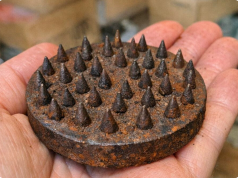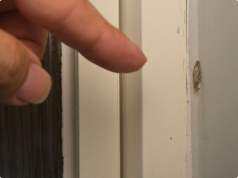The story of a young actress who lost both kidneys before the age of 30 has sent shockwaves across social media and medical communities. Once vibrant and healthy, she now depends on dialysis for survival — a harsh reality that came on suddenly, with few warning signs.
She is not alone.
Another heartbreaking case involves a 20-year-old university student who collapsed from fatigue and was rushed to the hospital — only to be diagnosed with end-stage renal failure. Doctors were stunned. There were no prior red flags. But when they asked about his lifestyle, the truth emerged:
- He routinely stayed up late
- Lived on fast food and sugary drinks
- Never exercised
- Rarely drank water
These habits — alarmingly common among young adults — may have silently destroyed his kidneys long before symptoms appeared.
Kidney Failure Is No Longer a “Senior” Disease
In the past, kidney disease was mostly associated with older adults, diabetes, or high blood pressure. But today, doctors are seeing a disturbing trend: kidney failure is striking younger and younger — even in people in their 20s.
Dr. Lin Mei, a nephrologist at a leading hospital, warns:
“We’re not just treating elderly patients anymore. We’re seeing dialysis machines filled with people under 30 — and their kidney damage is often linked to preventable lifestyle habits.”
2 Habits That Are Quietly Destroying Young Kidneys
After reviewing dozens of young patients with severe kidney damage, doctors have identified two major lifestyle factors that dramatically increase the risk of kidney failure:
1. Unbalanced Diet — Especially Too Much Protein & Processed Food
While protein is essential, excessive intake — especially from animal sources and processed meats — overworks the kidneys.
When the body breaks down protein, it produces waste products like urea and uric acid. The kidneys must filter these out. Over time, this constant strain can:
- Cause elevated uric acid levels → leading to gout and kidney stones
- Damage kidney tubules and blood vessels
- Accelerate the formation of chronic kidney disease (CKD)
Common dietary risks:
- Daily fast food (high in salt, preservatives, and protein)
- Protein-heavy diets (popular among gym-goers)
- Sugary sodas and energy drinks
- Low water intake
💡 Example: A young man drinking protein shakes daily, eating burgers for dinner, and barely drinking water is unknowingly poisoning his kidneys.
2. Chronic Sleep Deprivation & Sedentary Lifestyle
Staying up late, pulling all-nighters, and living a sedentary life don’t just cause fatigue — they disrupt the body’s internal balance.
Poor sleep and inactivity lead to:
- Increased blood pressure — a top cause of kidney damage
- Insulin resistance — raising the risk of diabetes, another leading cause of kidney failure
- Weakened immune function — making the body less able to repair organ damage
When combined with a poor diet, this creates a toxic environment for the kidneys — slowly, silently, and irreversibly.
Why Young People Don’t Notice the Warning Signs
The most dangerous thing about kidney disease?
It’s silent.
In the early stages, there are no obvious symptoms. The kidneys can lose up to 90% of their function before you feel anything wrong.
When symptoms do appear, it’s often too late. They’re also easily mistaken for stress or fatigue:
- Persistent tiredness
- Swelling in the legs, ankles, or face
- Frequent urination (especially at night)
- Nausea or loss of appetite
- Itchy or dry skin
- High blood pressure
By the time these signs show up, many patients are already in Stage 4 or 5 kidney disease — requiring dialysis or a transplant.
How to Protect Your Kidneys — Before It’s Too Late
You don’t have to end up on dialysis. Kidney damage is often preventable — and even reversible in early stages.
✅ 1. Get Regular Health Check-Ups
- Every 6 months, get:
- Blood pressure check
- Blood tests (creatinine, eGFR)
- Urine tests (for protein or blood)
- These simple tests can detect kidney problems years before symptoms appear.
✅ 2. Fix Your Diet
- Eat more fruits, vegetables, and whole grains
- Limit red meat, processed foods, and salty snacks
- Drink at least 1.5–2 liters of water daily
- Avoid sugary drinks and energy drinks
✅ 3. Prioritize Sleep & Movement
- Aim for 7–8 hours of quality sleep every night
- Avoid late-night screen time
- Exercise at least 30 minutes a day, 5 days a week — even walking helps
✅ 4. Know Your Risk
- Family history of kidney disease, diabetes, or high blood pressure?
- Taking painkillers (like ibuprofen) regularly?
- Over 18? You need to care — kidney health isn’t just for older adults.
Final Thoughts: Your Kidneys Are Silent — But They’re Screaming for Help
The tragic cases of young people losing their kidneys are not just rare anomalies — they’re warnings.
Your kidneys work 24/7 to filter waste, balance fluids, and regulate blood pressure — all without making a sound. But if you ignore your lifestyle, they will fail.
And once they do, there’s no going back.
So if you’re staying up late, living on fast food, skipping water, and ignoring check-ups — stop.
Start today:
- Drink more water
- Eat real food
- Sleep well
- Move your body
- Get tested
Because the best time to save your kidneys was years ago.
The second-best time? Right now.
Your life depends on it.






